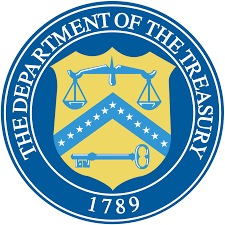The Treasury Department has started approving broadband grants to states from a $10 billion fund approved under the American Rescue Plan’s Coronavirus Capital Projects Fund (CPF). A key priority of the program is to make funding available for reliable, affordable broadband infrastructure and other digital connectivity technology projects.
The Treasury Department said Tuesday that Louisiana, New Hampshire, Virginia, and West Virginia are the first states to be approved to receive funds under the American Rescue Plan and will connect over 200,000 homes and businesses. The state plans approved in this first group are designed to meet or exceed symmetrical download and upload speeds of 100 Mbps.
The Treasury Department said it designed its guidance “to prioritize connecting families and businesses with poor and inadequate service – particularly those in rural and remote areas.” States must also explain why communities they have identified to be served with funds from the CPF critically need those projects.
Each state’s plan requires service providers to participate in the FCC new Affordable Connectivity Program (ACP). The ACP helps ensure that households can afford the broadband they need for work, school and healthcare by providing a discount of up to $30 per month. The FCC estimates that about 48 million families are eligible for the program—nearly 40 percent of households.
President Biden and Vice President Harris recently announced their work to secure commitments from 20 internet service providers – covering more than 80 percent of the U.S. population – to offer all ACP-eligible households high-speed, high-quality internet plans for no more than $30 per month. As a result, these households will receive internet access at no cost, Inside Towers reported.
More Money Coming
The Treasury Department has also approved more than 30 awards to Tribal governments, and intends to continue approving state and Tribal plans on a rolling basis. States must submit their plans to the Treasury Department no later than September 24.
The following descriptions highlight the four state plans that the Treasury Department approved:
- Louisiana, approved for $176.7 million (representing 100 percent of its available CPF funding), will provide funding to connect nearly 88,500 homes and businesses currently lacking access to internet at speeds of 25/3 Mbps through the state’s new Granting Unserved Municipalities Broadband Opportunities program, a multi-phase, broadband infrastructure competitive grant program. Louisiana estimates that projects receiving funding from this CPF award will close the digital divide for approximately 25 percent of all locations lacking high-speed internet access in the state.
- New Hampshire, approved for an initial award of $50 million (representing 41 percent of its available CPF funding), estimates it will serve 15,000 homes and businesses, in rural and remote areas, which represents approximately 50 percent of locations in the state that lack access to high-speed internet. The state’s new Broadband Contract Program is designed to select and support a local ISP to provide internet service to the most rural parts of the state lacking service. The program will prioritize applicants that encourage the maximum number of locations to be served at the lowest cost, and broadband networks that will be owned, operated by, or affiliated with local governments, non-profits, and co-operatives.
- Virginia, approved for $219.8 million (representing 100 percent of its available CPF funding), will use funds to expand last-mile broadband access to an estimated 76,873 locations, approximately 28 percent of locations the state estimates lack access to high-quality broadband service. Through a competitive grant-making program overseen by the Virginia Telecommunication Initiative, local governments in partnership with internet service providers apply for funds with the goal of deploying universal coverage solutions in the localities involved.
- West Virginia, approved for $136.3 million (representing 100 percent of its available CPF funding), estimates that projects receiving funding from this CPF award will serve 20,000 locations, or approximately 10 percent of locations in the state that lack access to high-speed internet. The state will use three separate grant programs that focus funding for last-mile connections to homes and businesses currently without access to the internet at speeds of at least 25/3 Mbps. The Line Extension Advancement and Development Program will fund the extensions of last-mile broadband networks that can be constructed quickly, the Major Broadband Projects Strategies Program will fund larger-scale projects designed to serve large numbers of eligible addresses, and GigReady will provide local governments with the opportunity to use matching funds for broadband infrastructure projects.
By Leslie Stimson, Inside Towers Washington Bureau Chief





Reader Interactions